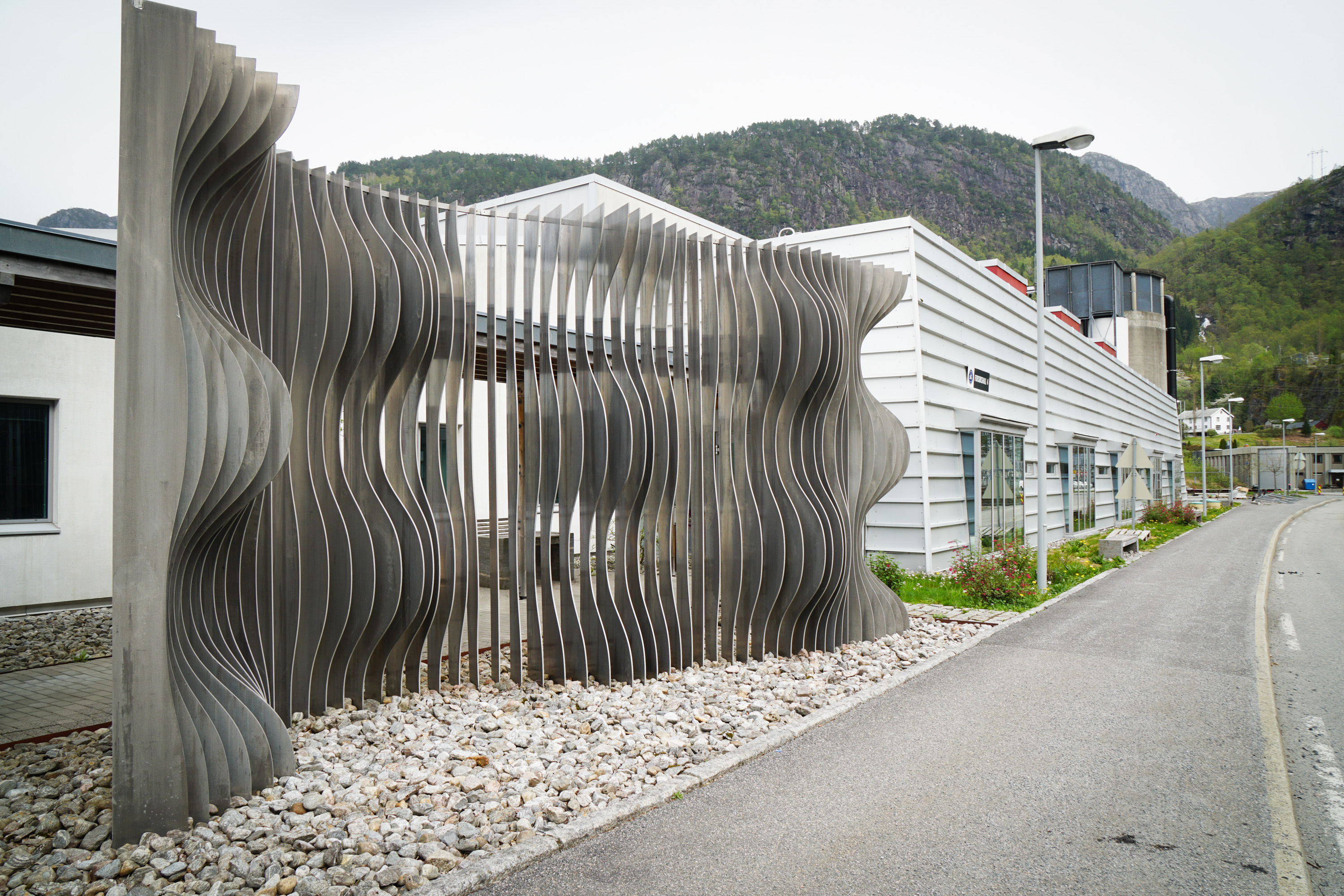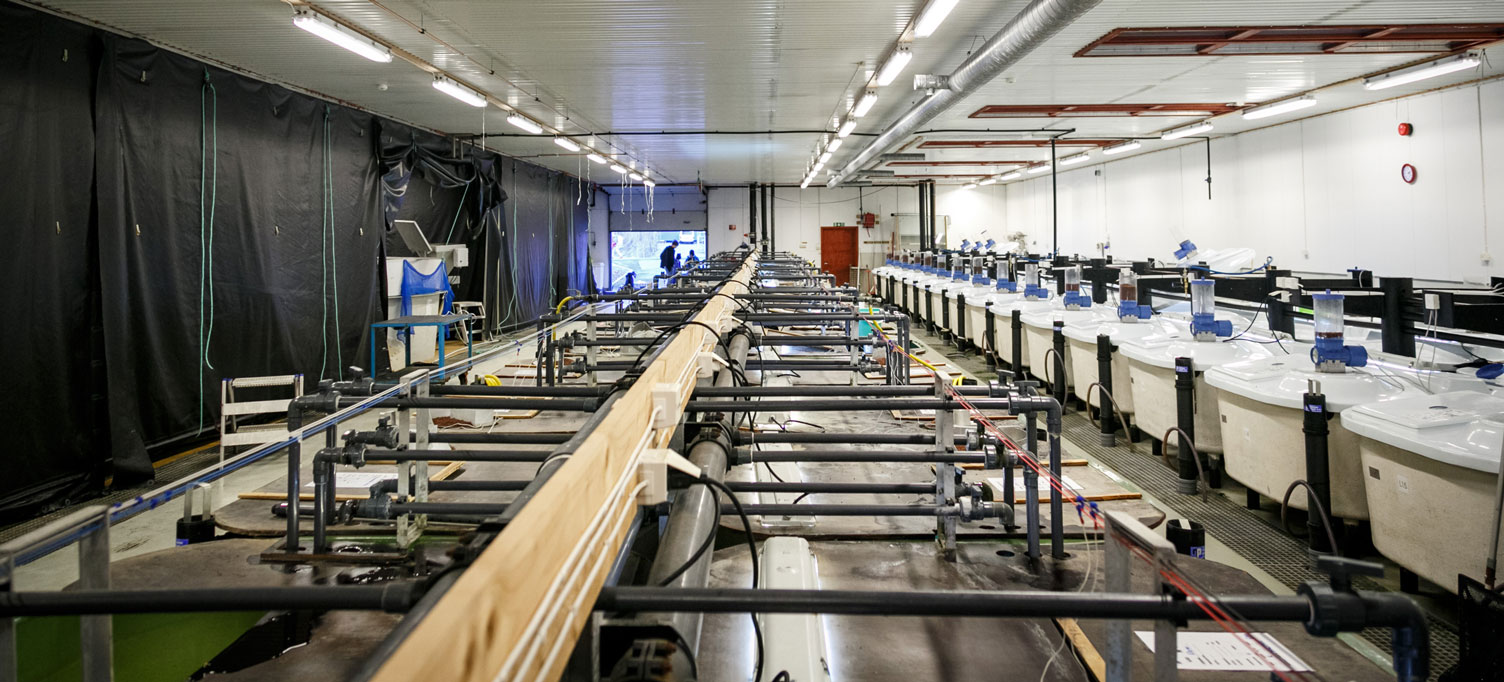Matre Research Station


Matre, Masfjorden
Photo: Halfdan Hallseth / IMR
Land facilities along the Matre river and Smørdalen seafarm facilities in the background.
Photo: Ragnar Nortvedt, IMR
Karen Anita Kvestad takes X-ray images of salmon to reveal imperfections in the skeleton and a bonebreaker to test the skeletons strenght.
Photo: Erlend A. Lorentzen / IMR
X-ray imaging of salmon
Photo: Erlend A. Lorentzen / IMRThe research station is an important platform for the Institute of Marine Research's activities in aquaculture research and fish experiments, with special focus on reproductive biology, fish welfare, salmon sea lice and fish nutrition. The activity includes experiments with salmon at all stages on sea and land, marine species and wild caught fish. Master and PhD students from different Universities are welcome to carry out their experimental studies here at any time, and we also have established an educational training program for apprentices in aquaculture. All visitors are welcome to rent one of our modern apartments, seven minutes walking from the station. The hiking, paddling and fishing opportunities in leisure time are outstanding.
The fish laboratories can be adapted to many needs, and in the chemistry laboratory we carry out analyses of fish and water quality parameters, hormones and blood chemistry, quantification of all the salmon lice stages, fish welfare scores, X-ray analyses of the skeleton and video analyses of fish behaviour.

X-ray imaging of Atlantic salmon skeleton. Photo: Audun Østby Pedersen
The fresh water (16.000 l/min) is supplied from both the Matre River and from the BKK Hydroelectric Power Plant. The sea water (16.000 l/min) is pumped from 90 m depth and keeps a stable temperature all year around. The fresh water is treated with ozone and the sea water is UV light illuminated before use. Matre Research Station has a complex water processing and 24 h. monitoring system, giving the opportunities to establish any combinations of water temperature, oxygen and salinity to the fish species all year around.
The research station has two fish farms located in the fjord. We have a mix of 5x5, 12x12 and 20x20 m sea cages that make it possible to carry out repeated and randomized experiments in small or semi-industrial scale. Some of the sea cages are equipped with cameras, fish eye echo sounder and fish welfare meter (CTD sensors) in order to monitor both the environmental conditions and the respective fish behaviour under varying conditions, or in short a “sea cage laboratory”. From time to time we also carry out tests of equipment and methods for industrial partners.
Our administration building was renovated in 2019. The facilities include a new X-ray lab, new changing rooms with shower and laundry room, new ventilation room, new computer room and new elevator shaft. In 2020 we have finished the installation of new fresh water filters and vacuum aeration systems.


Published: 19.02.2020 Updated: 29.11.2024
